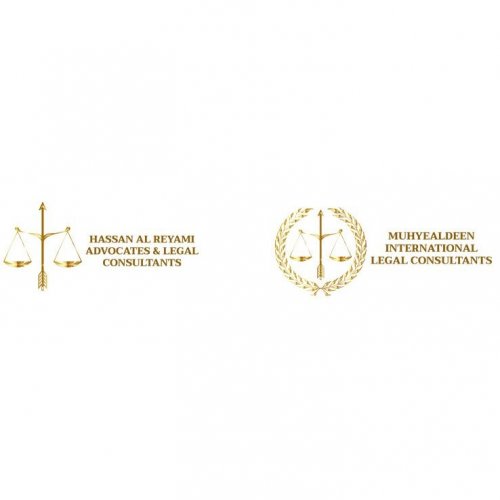Best Climate Change Law Lawyers in Abu Dhabi
Share your needs with us, get contacted by law firms.
Free. Takes 2 min.
List of the best lawyers in Abu Dhabi, United Arab Emirates

The Black Robe For Legal Consultancy & Debit Collection
1 hour Free ConsultationAbout Climate Change Law in Abu Dhabi, United Arab Emirates
Climate Change Law in Abu Dhabi, United Arab Emirates, is a developing legal field that addresses the impacts of climate change through regulations and policies affecting businesses, individuals, and government operations. The Emirate of Abu Dhabi, as part of the UAE, follows national frameworks while also developing localized measures. Climate change laws encompass environmental protection, emission controls, renewable energy targets, sustainable development initiatives, and measures to adapt to the effects of climate change. Abu Dhabi has emerged as a regional leader in sustainability, and its legal infrastructure is evolving to reflect national and international commitments to reducing greenhouse gases and promoting environmental stewardship.
Why You May Need a Lawyer
Legal help in the area of climate change is often necessary because of the complexity of local and federal regulations. Here are common situations where seeking legal advice is advisable:
- Businesses planning to launch projects that may affect the environment or intersect with carbon reduction targets
- Companies aiming to comply with emission or waste reduction laws
- Issues concerning renewable energy projects, such as permitting or contractual disputes
- Advisory on environmental responsibility policies for organizations and government bodies
- Disputes related to environmental damages and the need for mitigation or compensation
- Understanding compliance obligations under national or Emirate-specific decrees
- Participating in public tenders related to sustainable infrastructure
- Navigating carbon trading, offset projects, or green financing initiatives
- Advice on adopting new technologies like solar power, water reclamation, or waste-to-energy
- Handling transboundary environmental issues or compliance with international climate agreements
Local Laws Overview
Climate Change Law in Abu Dhabi is shaped by both federal UAE regulations and specific Emirate-level laws. Major aspects include:
- Federal Law No. 24 of 1999 - Governs environmental protection and development, including conservation of air, water, and soil, as well as pollution controls
- UAE Net Zero by 2050 Strategic Initiative - The UAE was the first Middle Eastern country to commit to net-zero carbon emissions by 2050, affecting policy direction at all government levels, including Abu Dhabi
- Regulations on Renewable Energy - Laws and policies supporting solar, wind, and nuclear energy, with requirements for licenses, permits, and compliance
- Green Building Codes and Sustainable Development - Estidama Pearl Rating System in Abu Dhabi sets mandatory sustainability standards for buildings and communities
- Waste Management Regulations - Rules on recycling, hazardous materials handling, and mandatory reporting for industries
- Environmental Impact Assessments (EIA) - Most major projects are required to undergo EIA to assess and mitigate potential climate impact
- Fines and Enforcement - Penalties for non-compliance, including fines, project suspension, or license revocation
Frequently Asked Questions
What is climate change law and how does it apply in Abu Dhabi?
Climate change law refers to the set of regulations, policies, and standards aimed at reducing greenhouse gas emissions and managing the effects of climate change. In Abu Dhabi, it covers areas such as clean energy, emissions control, environmental protection, and sustainability initiatives.
Do all businesses in Abu Dhabi need to comply with climate-related regulations?
Yes, businesses, especially those in construction, manufacturing, energy, and waste management, must comply with both national and local climate and environmental regulations. The extent of obligations depends on the sector and potential environmental impact.
Are there incentives for companies adopting green or sustainable practices?
Abu Dhabi and the UAE offer various incentives, such as grants, expedited licensing, and recognition, to encourage sustainable development and adoption of clean technologies.
How are violations of climate change laws penalized?
Penalties include fines, business license suspension or revocation, and, in severe cases, criminal prosecution. Companies and individuals may also be held liable for costs associated with environmental damage or required remediation.
Is renewable energy regulated in Abu Dhabi?
Yes, there are specific regulations for renewable energy projects, ensuring they meet technical, environmental, and safety standards. Permits and ongoing compliance checks are mandatory.
What is an Environmental Impact Assessment (EIA) and when is it required?
An EIA is a formal analysis of how a proposed project may affect the environment and climate. It is generally required for large developments, infrastructure projects, and industrial operations.
Can individuals report environmental violations?
Yes, residents and workers can report suspected environmental or climate law violations to local authorities such as the Environment Agency - Abu Dhabi or directly to the police.
Are there regulations for carbon trading or offset schemes?
The UAE is developing legal frameworks for carbon trading and offset schemes, especially as part of its commitment to international agreements and net zero targets. Specific regulations are expected to evolve over time.
How does climate change law intersect with international agreements?
Abu Dhabi, through the UAE, is a signatory to the Paris Agreement and other international treaties, which influence local law-making and policy implementation regarding climate change.
What legal steps do I need to take to ensure my company is compliant?
It is important to consult with a lawyer who can audit your business operations, review applicable laws, assist with required permits, and train staff on best practices for compliance.
Additional Resources
If you need more information or wish to report a concern, the following organizations may be helpful:
- Environment Agency - Abu Dhabi (EAD): Oversees environmental regulation and enforcement in Abu Dhabi
- Ministry of Climate Change and Environment (MOCCAE): Sets federal climate policies and oversees implementation across the UAE
- Masdar: Abu Dhabi’s renewable energy company, provides resources and best practices on green energy
- Abu Dhabi Department of Energy: Regulates sustainable energy initiatives
- Local law firms with experience in environmental and climate change law
Next Steps
If you believe you require legal assistance with climate change law in Abu Dhabi:
- Identify your specific needs, such as compliance advice, permit applications, or dispute resolution
- Gather documentation about your activities, business operations, or project plans
- Contact a lawyer or legal firm specializing in environmental and climate change law in Abu Dhabi
- Consult with relevant governmental authorities for regulatory guidance
- If you have received a notice of violation or enforcement action, seek legal counsel immediately to respond appropriately
Taking these steps can help you navigate the legal landscape of climate change law in Abu Dhabi and ensure your actions are aligned with local and federal requirements.
Lawzana helps you find the best lawyers and law firms in Abu Dhabi through a curated and pre-screened list of qualified legal professionals. Our platform offers rankings and detailed profiles of attorneys and law firms, allowing you to compare based on practice areas, including Climate Change Law, experience, and client feedback.
Each profile includes a description of the firm's areas of practice, client reviews, team members and partners, year of establishment, spoken languages, office locations, contact information, social media presence, and any published articles or resources. Most firms on our platform speak English and are experienced in both local and international legal matters.
Get a quote from top-rated law firms in Abu Dhabi, United Arab Emirates — quickly, securely, and without unnecessary hassle.
Disclaimer:
The information provided on this page is for general informational purposes only and does not constitute legal advice. While we strive to ensure the accuracy and relevance of the content, legal information may change over time, and interpretations of the law can vary. You should always consult with a qualified legal professional for advice specific to your situation.
We disclaim all liability for actions taken or not taken based on the content of this page. If you believe any information is incorrect or outdated, please contact us, and we will review and update it where appropriate.












